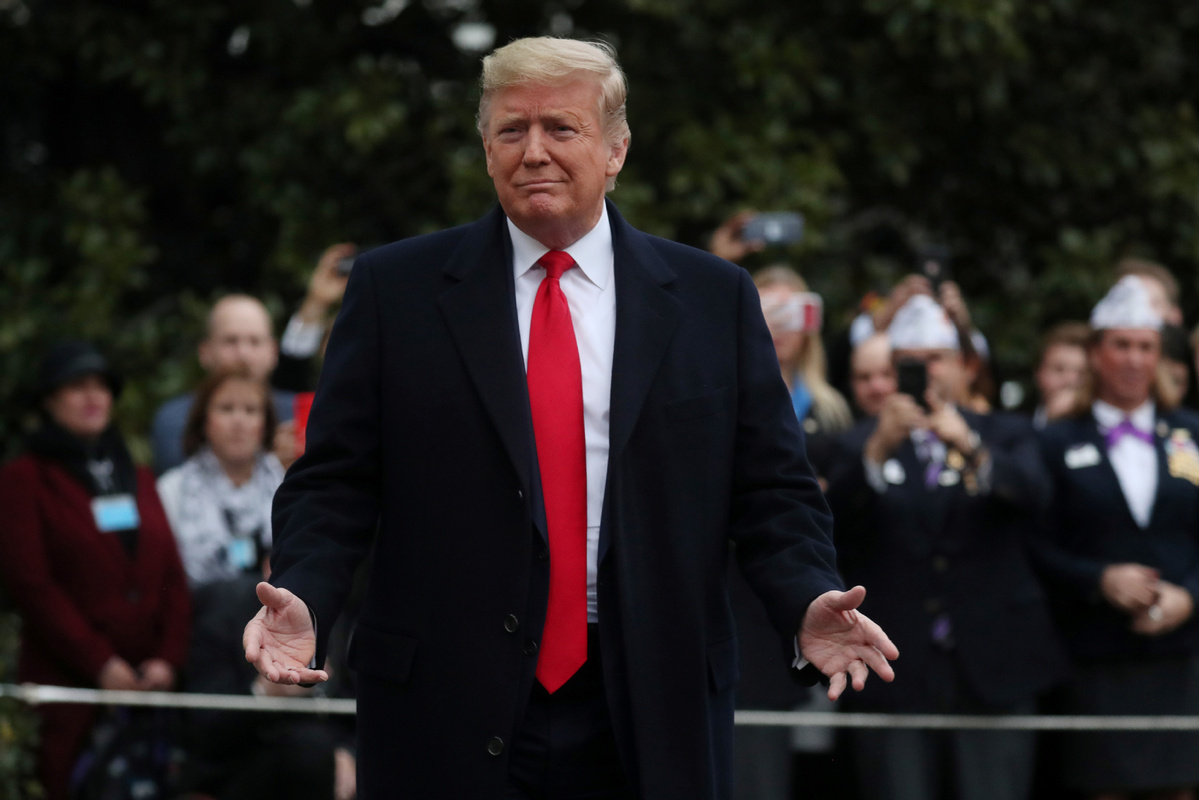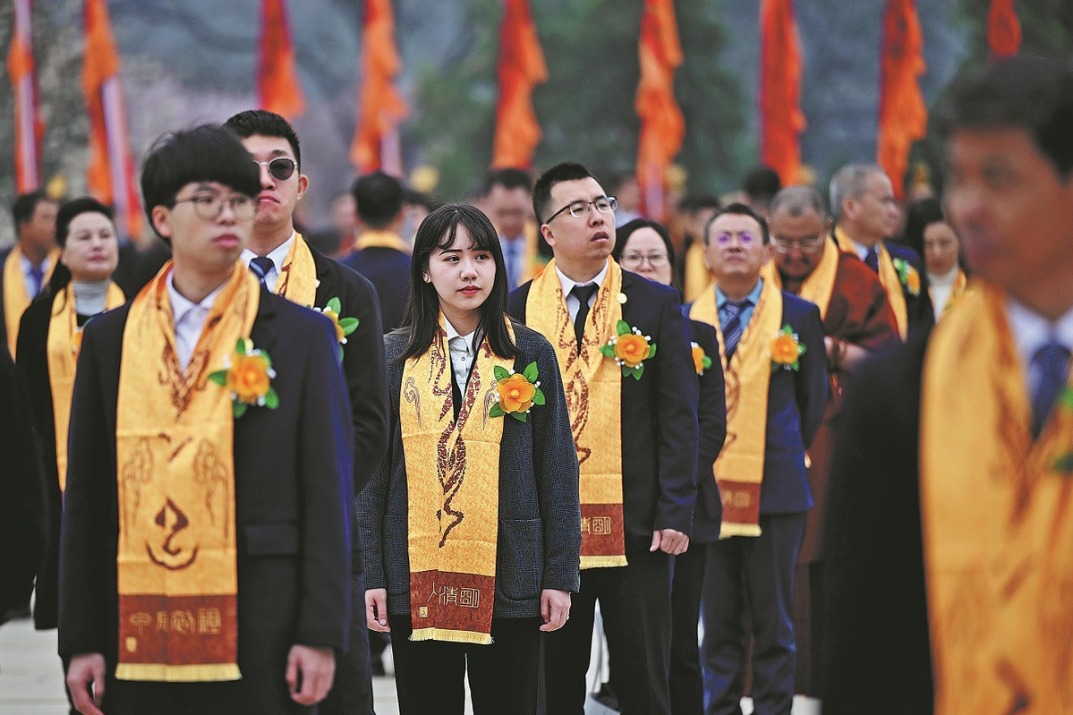European unity over Iran nuclear deal could catch Trump off guard
By Harvey Morris | China Daily Global | Updated: 2020-01-14 10:28

Part of the United States President Donald Trump's motivation for what was seen, even in his home country, as a reckless decision to order the assassination of Iran's General Qassem Soleimani was to kill off the 2015 international pact governing the country's nuclear program.
"As long as I am President of the United States, Iran will never be allowed to have a nuclear weapon," Trump proclaimed in the aftermath, without quite explaining how killing one of that country's top commanders would help fulfill that promise.
Other world leaders believe it is Joint Comprehensive Plan of Action, or JCPOA, rather than military adventurism that offers the best path to contain any residual Iranian ambition to acquire a nuclear bomb.
Trump pulled the US out of the agreement in 2018 and has been urging other signatories to do likewise. In the aftermath of Soleimani's killing he said: "The very defective JCPOA expires shortly anyway, and gives Iran a clear and quick path to nuclear breakout. Iran must abandon its nuclear ambitions and end its support for terrorism."
Referring to the pact's remaining members, he said: "The time has come for the United Kingdom, Germany, France, Russia, and China to recognize this reality."
Yet despite the damage wrought on the agreement by the US withdrawal, to say nothing of the turmoil of the past two weeks, the pact has somehow survived.
It is still formally intact even after Iran reacted to Soleimani's death by announcing it would no longer meet restrictions on uranium enrichment contained in the JCPOA.
A statement issued jointly in recent days by the three European signatories reiterated their commitment to the JCPOA, while regretting the US decision to withdraw and to impose sanctions on Iran. It nevertheless urged Iran "to reverse all measures inconsistent with the agreement and return to full compliance".
Trump may have been hoping that UK Prime Minister Boris Johnson, eager for a post-Brexit trade deal with the US, might have parted company with his European partners and taken Washington's side. But so far Europe is displaying a united front.
Russia reaffirmed its commitment to the pact, while criticizing Western European nations for not doing enough to help Teheran find a way round US sanctions.
China, meanwhile, urged all parties to abide by the terms of the pact and blamed Washington for stoking tensions in the Middle East with its withdrawal.
"The US has unilaterally withdrawn from the JCPOA, ignored international law and its international obligations, imposed maximum pressure on Iran, and obstructed other parties in keeping their commitments", Chinese Foreign Ministry Spokesman Geng Shuang said. "Such practices are the root cause of current tensions."
Soleimani's killing might have been expected to strengthen the hand of hardliners in Teheran who were always uncomfortable about signing up to an agreement that limited Iran's military options.
According to Trumpian logic, strengthening the hardliners might have seemed another way to kill off the nuclear pact and further destabilize the situation. But actions have consequences, frequently unintended ones, as even Trump must realize.
In the fraught days following the assassination, an Iranian missile unintentionally brought down a Ukrainian passenger jet with the loss of 176 lives. In Iran, that has provoked a street reaction against those same military hardliners in the government.
It was the latest sign of dissent from a long-suffering public that was battered by international sanctions before the JCPOA was signed and has faced further hardship since US sanctions were reimposed.
So can the nuclear deal survive the latest turmoil and the unknown consequences that may yet follow? One reason to keep the pact alive is that to kill it off would amount to a reward for Trump's decision to assassinate Soleimani, an act which promoted even his closest European allies to call "on all parties to exercise utmost restraint and responsibility".
The Iranians claim that one factor undermining the deal is Europe's failure to help it navigate around US sanctions. The European Union set up an Instrument in Support of Trade Exchanges, the so-called INSTEX, essentially a barter mechanism to ensure Iran receives oil revenues in the face of a US embargo on banking transactions.
But Iran's Deputy Foreign Minister Abbas Araghchi said late last year that the mechanism "has been suggested too late and operates at a low level. It has not yet been fully implemented".
He was more upbeat last month when he announced that the mechanism was about to come into operation. But whether that optimism will survive the subsequent turmoil is yet to be seen.
One problem is that, while governments may be willing to cooperate with Teheran to help Iran circumvent the sanctions, European banks are reluctant to facilitate any trade that might undermine their US operations.
Europe has shown it is ready to defy Washington in order to preserve the JCPOA but it must do all it can to persuade Iran that sticking to the deal is worthwhile. The alternative is to let Trump have his way, with all the uncertainty for peace that such an option entails.























